Fleurs du Mal Magazine



Op het plein was alleen nog de buizerd te horen, die soms riep alsof hij om iets vroeg, terwijl hij zijn salto’s om de met bessentrossen beladen takken van de meidoorn draaide. De vogel was onrustig, omdat hij de jongen niet meer hoorde. Even bleef hij doodstil hangen, viel toen als een bal naar beneden. Net voordat zijn bek de grond in zou boren schoot hij omhoog. In zijn klauwen de muis die zo onvoorzichtig was geweest om tussen gras en boterbloemen rond te dollen.
Nog voor de muis de geest gaf, zag hij voor de eerste en enige maal in zijn korte leven het dorpsplein van Solde in vogelvlucht. Slechts vaag, want bloed sijpelde over zijn ogen en maakte alles glazig. Hoewel de muis in doodsstrijd verkeerde moest hij, zo jong als hij was, toch onder de indruk zijn van het panorama dat hij mocht aanschouwen. Het dorpsplein, schitterend door de ochtenddauw. In het midden de dorpspomp, het gietijzeren hart van Solde. In het gras Kaffa en Céleste, die haar armen om de dorpsgek heen had geslagen. Verderop de grauwe stegen die vanaf het plein naar de andere delen van het dorp leidden. De daken waaronder het merendeel van de bewoners nog lag te slapen, overgegeven aan God de Heer die vanuit Zijn kerk over hen waakte. De buizerd gunde de muis slechts kort het zicht op dit alles. Nog voor hij zijn plaats op de bovenste tak van de meidoorn had bereikt, sloeg hij hem de hersens in. Voordat hij de muis begon op te vreten, bekeek hij hem aandachtig. Scheurde staart en stukken huid af en liet die tussen de resten van andere prooi vallen. Verbleekte beenderen. Kaken. Veren.
De eerste dorpeling kwam naar buiten. De man zag die twee daar op het plein, de gek en de meid. Hij haalde zijn schouders op. Hoe die zich konden aanstellen, zo vroeg op de ochtend. Wat een toneel. Daar moest zo’n boer, met zijn kop nog vol slaap en met de pest in over de nieuwe dag, niets van hebben.
Ton van Reen: Landverbeuren (04)
wordt vervolgd
fleursdumal.nl magazine
More in: - Landverbeuren, Reen, Ton van
The Sorrows of Young Werther (62) by J.W. von Goethe
“I sit in my grief: I wait for morning in my tears! Rear the tomb, ye friends of the dead. Close it not till Colma come. My life flies away like a dream. Why should I stay behind? Here shall I rest with my friends, by the stream of the sounding rock. When night comes on the hill when the loud winds arise my ghost shall stand in the blast, and mourn the death of my friends. The hunter shall hear from his booth; he shall fear, but love my voice! For sweet shall my voice be for my friends: pleasant were her friends to Colma. “Such was thy song, Minona, softly blushing daughter of Torman. Our tears descended for Colma, and our souls were sad! Ullin came with his harp; he gave the song of Alpin.
The voice of Alpin was pleasant, the soul of Ryno was a beam of fire! But they had rested in the narrow house: their voice had ceased in Selma! Ullin had returned one day from the chase before the heroes fell. He heard their strife on the hill: their song was soft, but sad! They mourned the fall of Morar, first of mortal men! His soul was like the soul of Fingal: his sword like the sword of Oscar. But he fell, and his father mourned: his sister’s eyes were full of tears. Minona’s eyes were full of tears, the sister of car-borne Morar. She retired from the song of Ullin, like the moon in the west, when she foresees the shower, and hides her fair head in a cloud. I touched the harp with Ullin: the song of morning rose! “Ryno. The wind and the rain are past, calm is the noon of day. The clouds are divided in heaven. Over the green hills flies the inconstant sun. Red through the stony vale comes down the stream of the hill. Sweet are thy murmurs, O stream! but more sweet is the voice I hear. It is the voice of Alpin, the son of song, mourning for the dead! Bent is his head of age: red his tearful eye. Alpin, thou son of song, why alone on the silent hill? why complainest thou, as a blast in the wood as a wave on the lonely shore? “Alpin. My tears, O Ryno! are for the dead my voice for those that have passed away. Tall thou art on the hill; fair among the sons of the vale. But thou shalt fall like Morar: the mourner shall sit on thy tomb. The hills shall know thee no more: thy bow shall lie in thy hall unstrung! “Thou wert swift, O Morar! as a roe on the desert: terrible as a meteor of fire. Thy wrath was as the storm. Thy sword in battle as lightning in the field. Thy voice was as a stream after rain, like thunder on distant hills. Many fell by thy arm: they were consumed in the flames of thy wrath.
But when thou didst return from war, how peaceful was thy brow. Thy face was like the sun after rain: like the moon in the silence of night: calm as the breast of the lake when the loud wind is laid. “Narrow is thy dwelling now! dark the place of thine abode! With three steps I compass thy grave, O thou who wast so great before! Four stones, with their heads of moss, are the only memorial of thee. A tree with scarce a leaf, long grass which whistles in the wind, mark to the hunter’s eye the grave of the mighty Morar. Morar! thou art low indeed. Thou hast no mother to mourn thee, no maid with her tears of love. Dead is she that brought thee forth. Fallen is the daughter of Morglan. “Who on his staff is this? Who is this whose head is white with age, whose eyes are red with tears, who quakes at every step? It is thy father, O Morar! the father of no son but thee. He heard of thy fame in war, he heard of foes dispersed. He heard of Morar’s renown, why did he not hear of his wound? Weep, thou father of Morar! Weep, but thy son heareth thee not. Deep is the sleep of the dead, low their pillow of dust. No more shall he hear thy voice, no more awake at thy call. When shall it be morn in the grave, to bid the slumberer awake? Farewell, thou bravest of men! thou conqueror in the field! but the field shall see thee no more, nor the dark wood be lightened with the splendour of thy steel. Thou has left no son. The song shall preserve thy name. Future times shall hear of thee they shall hear of the fallen Morar!
The Sorrows of Young Werther (Die Leiden des jungen Werther) by J.W. von Goethe. Translated by R.D. Boylan.
To be continued
fleursdumal.nl magazine
More in: -Die Leiden des jungen Werther, Goethe, Johann Wolfgang von
tussen zwaarte, typografische collage, 2014, Freda Kamphuis
fleursdumal.nl magazine
More in: Freda Kamphuis, Freda Kamphuis, Kamphuis, Freda
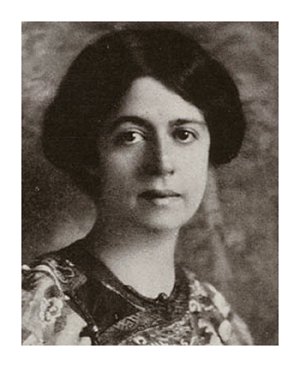
Eunice Tietjens
(1884 – 1944)
The Altar of Heaven
Beneath the leaning, rain-washed sky this great white
circle–beautiful!
In three white terraces the circle lies, piled one on
one toward Heaven. And on each terrace the
white balustrade climbs in aspiring marble, etched
in cloud.
And Heaven is very near.
For this is worship native as the air, wide as the
wind, and poignant as the rain,
Pure aspiration, the eternal dream.
Beneath the leaning sky this great white circle!
(Peking)
Eunice Tietjens poetry
fleursdumal.nl magazine
More in: Archive S-T, Tietjens, Eunice
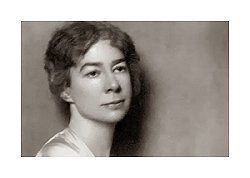
Sara Teasdale
(1884 – 1933)
“It Is Not a Word”
It is not a word spoken,
Few words are said;
Nor even a look of the eyes
Nor a bend of the head,
But only a hush of the heart
That has too much to keep,
Only memories waking
That sleep so light a sleep.
Sara Teasdale poetry
fleursdumal.nl magazine
More in: Archive S-T, Teasdale, Sara

Céleste stond op en liep naar de toiletkast. In de spiegel zag ze hoe klein haar ogen nog waren. De rimpel rond haar wenkbrauwen. De hele ravage die aangericht was door het te veel drinken en roken de vorige avond. Ze had minder willen zuipen, maar achter de bar ontkwam ze niet aan de rondjes die de kerels uitdeelden. Haar hoofd was zwaar. Toch was dat niet helemaal onprettig. De roes had een onbestemd maar warm gevoel in haar nagelaten. Vaag hoorde ze buiten het dolle praten van Kaffa, die radeloos op het plein stond. Ze liep naar het raam. Zag dat Kaffa er ernstig aan toe was.
Hij was in paniek. Hij hield de handen in de broekzakken en kneep hard in zijn ballen om het door zijn kop kaatsende krijsen van het kind niet meer te horen. Hij had al zijn kracht nodig om niet in razernij uit te barsten. Niet te vervallen in een tomeloze drift, zoals hem vaker overkwam wanneer zijn angst hem de baas werd. Dan kon het gebeuren dat hij als een stormwind door het dorp ging en deuren en ramen bewerkte met zijn vuisten. Schreeuwend en tierend. Niemand durfde dan buiten te komen en de vrouwen riepen angstig de heilige Vitus aan, de schutspatroon tegen vallende ziektes en een dolgedraaid verstand. De heilige belijder bleek zijn tijd echter aan andere zaken te besteden. Hij had Kaffa nooit genezen. Kaffa’s vlagen van drift kwamen terug zodra er iets voorviel wat zijn angst opwekte. Al was het maar een dode vogel in de goot, het razen van een dolle hond of, zoals nu, het krijsen van een kind. Kaffa, hij stond daar maar. Een grote vis op het droge. Zijn mond ging open en dicht. Langzaam knikte hij door de knieën, sloeg tegen de grond en bleef liggen. Huilend. Zijn schouders schokten. Zijn wilde haren raakten verweven met het gras.
Céleste begreep dat hij haar nodig had. Ze schoot haar kleren aan, holde het café uit en knielde bij hem neer. Klopte hem zacht tussen de schouderbladen. Praatte tegen hem. Wat onnozele woorden over ochtend, vogels en gras. Al die dingen waar hij van hield. De zon op het water. De geur van brandend aardappelloof. Het zingen van kinderen. Door de troostende woorden kwam Kaffa tot rust. Zijn huilen verminderde. Hij ging rechtop zitten. Zijn hoofd gebogen, alsof hij zich schaamde voor zijn angst. Dat was schijn. Huilen was voor hem de gewoonste zaak van de wereld. Je deed het als je het nodig had en vaak luchtte het op. De jongen bleef gillen. Rauwer, maar steeds zachter, alsof die hand zijn keel dichtkneep. Tot zijn stem schor werd en helemaal wegviel.
Ton van Reen: Landverbeuren (03)
wordt vervolgd
fleursdumal.nl magazine
More in: - Landverbeuren, Reen, Ton van

The Sorrows of Young Werther (61) by J.W. von Goethe
“Star of descending night! fair is thy light in the west! thou liftest
thy unshorn head from thy cloud; thy steps are stately on thy hill. What
dost thou behold in the plain? The stormy winds are laid. The murmur of
the torrent comes from afar. Roaring waves climb the distant rock. The
flies of evening are on their feeble wings: the hum of their course is
on the field. What dost thou behold, fair light? But thou dost smile and
depart. The waves come with joy around thee: they bathe thy lovely hair.
Farewell, thou silent beam! Let the light of Ossian’s soul arise!
“And it does arise in its strength! I behold my departed friends. Their
gathering is on Lora, as in the days of other years. Fingal comes like a
watery column of mist! his heroes are around: and see the bards of song,
gray-haired Ullin! stately Ryno! Alpin with the tuneful voice: the soft
complaint of Minona! How are ye changed, my friends, since the days of
Selma’s feast! when we contended, like gales of spring as they fly along
the hill, and bend by turns the feebly whistling grass.
“Minona came forth in her beauty, with downcast look and tearful eye.
Her hair was flying slowly with the blast that rushed unfrequent from
the hill. The souls of the heroes were sad when she raised the tuneful
voice. Oft had they seen the grave of Salgar, the dark dwelling of
white-bosomed Colma. Colma left alone on the hill with all her voice of
song! Salgar promised to come! but the night descended around. Hear the
voice of Colma, when she sat alone on the hill!
“Colma. It is night: I am alone, forlorn on the hill of storms. The wind
is heard on the mountain. The torrent is howling down the rock. No hut
receives me from the rain: forlorn on the hill of winds!
“Rise moon! from behind thy clouds. Stars of the night, arise! Lead me,
some light, to the place where my love rests from the chase alone! His
bow near him unstrung, his dogs panting around him! But here I must
sit alone by the rock of the mossy stream. The stream and the wind roar
aloud. I hear not the voice of my love! Why delays my Salgar; why the
chief of the hill his promise? Here is the rock and here the tree! here
is the roaring stream! Thou didst promise with night to be here. Ah!
whither is my Salgar gone? With thee I would fly from my father, with
thee from my brother of pride. Our race have long been foes: we are not
foes, O Salgar!
“Cease a little while, O wind! stream, be thou silent awhile! let my
voice be heard around! let my wanderer hear me! Salgar! it is Colma who
calls. Here is the tree and the rock. Salgar, my love, I am here! Why
delayest thou thy coming? Lo! the calm moon comes forth. The flood is
bright in the vale. The rocks are gray on the steep. I see him not
on the brow. His dogs come not before him with tidings of his near
approach. Here I must sit alone!
“Who lie on the heath beside me? Are they my love and my brother? Speak
to me, O my friends! To Colma they give no reply. Speak to me: I am
alone! My soul is tormented with fears. Ah, they are dead! Their swords
are red from the fight. O my brother! my brother! why hast thou slain my
Salgar! Why, O Salgar, hast thou slain my brother! Dear were ye both to
me! what shall I say in your praise? Thou wert fair on the hill among
thousands! he was terrible in fight! Speak to me! hear my voice! hear
me, sons of my love! They are silent! silent for ever! Cold, cold, are
their breasts of clay! Oh, from the rock on the hill, from the top of
the windy steep, speak, ye ghosts of the dead! Speak, I will not be
afraid! Whither are ye gone to rest? In what cave of the hill shall
I find the departed? No feeble voice is on the gale: no answer half
drowned in the storm!
The Sorrows of Young Werther (Die Leiden des jungen Werther) by J.W. von Goethe. Translated by R.D. Boylan.
To be continued
fleursdumal.nl magazine
More in: -Die Leiden des jungen Werther, Goethe, Johann Wolfgang von
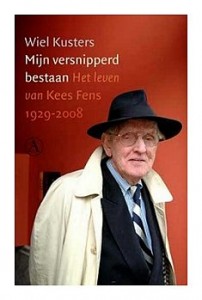
Wiel Kusters
& Mieke Koenen
VPRO Boeken
Zo 12 oktober 2014
NPO 1, 11.20 uur
Wiel Kusters schreef de biografie van ‘Kees Fens : Mijn versnipperd bestaan. Het leven van Kees Fens 1929-2008.’ Hij schetst een verrassend en ontroerend portret van de man die na zijn dood in de literaire wereld een leegte achterliet die niet meer gevuld werd.
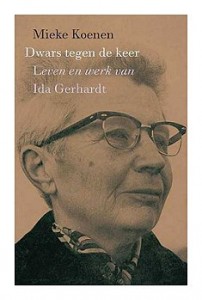
Ook te gast is Mieke Koenen, die het boek ‘Dwars tegen de keer. Leven en werk van Ida Gerhardt (1905-1997)’ schreef. De eerste volledige biografie op basis van talrijke nieuw ontdekt materiaal.
Wiel Kusters:
Mijn versnipperd bestaan. Het leven van Kees Fens 1929-2008.
Mieke Koenen
Dwars tegen de keer. Leven en werk van Ida Gerhardt (1905-1997)
# Meer informatie website VPRO BOEKEN
fleursdumal.nl magazine
More in: - Book News, Art & Literature News, BIOGRAPHY, Gerhardt, Ida, Kees Fens, Wiel Kusters
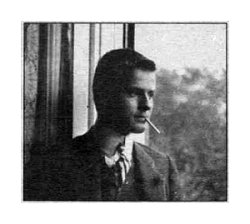
Hans Leybold
(1892-1914)
Traum der Sehnsucht
Wie oft hab ich meine Arme ausgebreitet
In der Nacht
Und hab gelegen
Und hab gewacht
Und hab gewartet auf dich …
Du musstest einmal kommen,
Und du kamst!
Du musstest kommen
Und du nahmst
All dies einsamgraue, öde Elend fort …
Du kamst wie ein Rosenhauch
In den Raum
Und knietest an meinem Bette –
Mir war’s wie ein Traum …
Und meine Arme schlossen sich
Sanft um deine gebeugte Gestalt.
Ich küsste Stirn dir und Haar,
Wieder und wieder … und mir war,
Als entzöge dich mir eine sanfte Gewalt …
Wo bliebst du … wo …?
Hart und roh
Schlägt mein Kopf an den Boden –!
Hans Leybold poetry
fleursdumal.nl magazine
More in: *War Poetry Archive, Archive K-L, Expressionism, Leybold, Hans
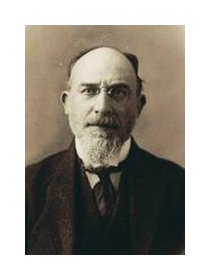
Erik Satie
(1866 – 1925)
Les Courses
La foule.
Le pesage.
Achat du programme.
Vingt et vingt.
Aux rubans.
Départ.
Ceux qui se dérobent.
Les perdants (nez pointus et oreilles tombantes.)
26 mars 1914
Erik Satie Les Courses
fleursdumal.nl magazine
More in: Archive S-T, Erik Satie, Satie, Erik
 The Nobel Prize in Literature for 2014 is awarded to the French author Patrick Modiano – “for the art of memory with which he has evoked the most ungraspable human destinies and uncovered the life-world of the occupation”.
The Nobel Prize in Literature for 2014 is awarded to the French author Patrick Modiano – “for the art of memory with which he has evoked the most ungraspable human destinies and uncovered the life-world of the occupation”.
Patrick Modiano was born on July 30, 1945, in Boulogne-Billancourt, a suburb of Paris. His father was a businessman and his mother an actress. Having left school, he studied at Lycée Henri-IV in Paris, where his teacher in geometry was Raymond Queneau, a writer who was to play a decisive role for his development. Already in 1968, Modiano made his debut as a writer with La place de l’étoile, a novel that attracted much attention.
Modiano’s works centre on topics such as memory, oblivion, identity and guilt. The city of Paris is often present in the text and can almost be considered a creative participant in the works. Rather often his tales are built on an autobiographical foundation, or on events that took place during the German occupation. He sometimes draws material for his works from interviews, newspaper articles or own notes which he has accumulated over the years. His novels show an affinity with one another, and it happens that earlier episodes are extended or that persons recur in different tales. The author’s home town and its history often serve to link the tales together. A work of documentary character, with World War II as background, is Dora Bruder 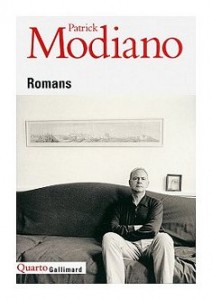 (1997; Dora Bruder, 1999) which builds on the true tale of a fifteen-year old girl in Paris who becomes one of the victims of the Holocaust. Among the works which most clearly reveal an autobiographical character one notes Un pedigree from 2005.
(1997; Dora Bruder, 1999) which builds on the true tale of a fifteen-year old girl in Paris who becomes one of the victims of the Holocaust. Among the works which most clearly reveal an autobiographical character one notes Un pedigree from 2005.
Some of Modiano’s works have been translated into English, among them Les boulevards de ceinture (1972; Ring Roads : A Novel, 1974), Villa Triste (1975; Villa Triste, 1977), Quartier perdu (1984; A Trace of Malice, 1988) and Voyage de noces (1990; Honeymoon, 1992). His latest work is the novel Pour que tu ne te perdes pas dans le quartier (2014). Modiano has also written children’s books and film scripts. Together with the film director Louis Malle he made the feature movie Lacombe Lucien (1974), enacted during the German occupation of France.
Works
La place de l’étoile. – Paris : Gallimard, 1968
La ronde de nuit. – Paris : Gallimard, 1969
Les boulevards de ceinture. – Paris : Gallimard, 1972
Lacombe Lucien : scénario / pour le film de Louis Malle. – Paris : Gallimard, 1974
Villa Triste. – Paris : Gallimard, 1975
Emmanuel Berl : Interrogatoire / par Patrick Modiano ; suivi de Il fait beau, allons au cimitière / Emmanuel Berl. – Paris : Gallimard, 1976
Livret de famille. – Paris : Gallimard, 1977
Rue des boutiques obscures. – Paris : Gallimard, 1978
Une jeunesse. – Paris : Gallimard, 1981
Memory Lane / ill. de Pierre Le-Tan. – Paris : Hachette, 1981
De si braves garçons. – Paris : Gallimard, 1982
Poupée blonde de Pierre Michel Wals / ill. de Pierre Le-Tan. – Paris : POL, 1983
Quartier perdu. – Paris : Gallimard, 1984
Une aventure de Choura / ill. de Dominique Zehrfuss. – Paris : Gallimard Jeunesse, 1986
Dimanches d’août. – Paris : Gallimard, 1986
Une fiancée pour Choura /ill. de Dominique Zehrfuss. – Paris : Gallimard Jeunesse, 1987
Remise de peine. – Paris : Le Seuil, 1988
Catherine Certitude / ill. de Jean-Jacques Sempe. – Paris : Gallimard, 1988
Vestiaire de l’enfance. – Paris : Gallimard, 1989
Voyage de noces. – Paris : Gallimard, 1990
Paris tendresse / photogr.: Brassaï ; texte: Modiano. – Hoëbeke, 1990
Fleurs de ruine. – Paris : Le Seuil, 1991
Un cirque passe. – Paris : Gallimard, 1992
Chien de printemps. – Paris : Seuil, 1993
Du plus loin de l’oubli. – Paris : Gallimard, 1995
Elle s’appelait Françoise / Catherine Deneuve, Patrick Modiano. – Paris : Canal plus, 1996
Dora Bruder. – Paris : Gallimard, 1997
Aux jours anciens. – Paris : Elle, 1998
Des inconnues. – Paris : Gallimard, 1999
La Petite Bijou. – Paris : Gallimard, 2001
Éphéméride / ill. de Robert Doisneau, Louis Stettner ; supplément au Le Monde. – Paris : Gallimard, 2001. [Deuxième version enrichit le premier: – Paris : Mercure de France, 2002]
Accident nocturne. – Paris : Gallimard, 2003
Dieu prend-il soin des boeufs? / ill. de Gérard Garouste. – La Combe-Les Eparres : Éd. de l’Acacia, 2003
Un pedigree. – Paris : Gallimard, 2005
28 Paradis / Dominique Zehrfuss, Patrick Modiano. – Paris : Éd. de l’Olivier, 2005
Dans le café de la jeunesse perdue. – Paris : Gallimard, 2007
L’horizon. – Paris : Gallimard, 2010
L’herbe des nuits. – Paris : Gallimard, 2012
28 Paradis, 28 Enfers / Dominique Zehrfuss, Patrick Modiano, Marie Modiano. – Paris : Gallimard, 2012
Romans. (Réunit dix romans de Patrick Modiano.) – Paris : Gallimard, 2013
Pour que tu ne te perdes pas dans le quartier. – Paris : Gallimard, 2014
# Source: website The Nobel Prize
fleursdumal.nl magazine
More in: - Book News, Art & Literature News, Awards & Prizes, FICTION: SHORT STORIES

Uit zijn keel kwam een schreeuw, alsof hij de jongen antwoord gaf. Het was alleen de angst die aan hem ontsnapte. Hij wilde naar de jongen toe. Regelrecht afgaan op die stem. Hij kon niet. Zijn voeten leken niet van hun plaats te kunnen, alsof hij vastzat in een moeras. Hij zou wat tegen de jongen willen zeggen, al was het maar om hem te laten horen dat hij niet alleen was. Niet zo alleen als hij zich voorstelde. Dat hij, Kaffa, bij hem in de buurt was. Maar in plaats van woorden welden er alleen ongecontroleerde klanken op uit zijn keel, als het praten van een woedende papegaai die zich in een vloed van woorden verslikte.
De jongen achter zijn gesloten venster hoorde niets van het gebral van de gek. Ook wist hij niet dat Céleste wakker was geschrokken door zijn gillen en in haar slaapkamer boven het café overeind zat in bed. Haar haren hingen in een krans om haar gezicht. Ze had haar oren gespitst en luisterde scherp om enig teken van de jongen op te vangen. Ze hoorde echter alleen het razende praten van Kaffa, waarvan haar de rillingen over de rug liepen. Ook in haar ogen stond angst te lezen. Ze zou nu graag bij de jongen willen zijn. Om tegen hem te praten. Naar hem te luisteren. Of alleen om zijn hand vast te houden. Dat was voor haar godsonmogelijk. Zijn vader, die verrekte timmerman, had haar verboden het kind te bezoeken. De man, die avond aan avond stomdronken bij haar in de kroeg zat, probeerde haar te versieren. Nu hij weduwnaar was, dacht hij vrij baan te hebben. Hij had geen schijn van kans bij haar. Kon hij daarom niet verkroppen dat het kind zo vertrouwelijk met haar omging? In zijn dronken woede had hij haar al vaker met een pak slaag gedreigd als ze haar handen niet van de jongen af zou houden. Al wekenlang lag de jongen zo.
Vanaf die ochtend dat Céleste hem had gezocht, verbaasd omdat hij niet was komen opdagen, hoewel ze hadden afgesproken al bij het ochtendkrieken naar de bossen te gaan. Hij wilde haar de jonge dieren laten zien in het nest van een vos dat hij pas had ontdekt. Omdat de timmerman op karwei was, had ze het huis durven binnengaan. Ze had de jongen op bed gevonden, in coma en al bijna dood. Schuim rond zijn mond. Zijn gezicht blauw en gezwollen. In zijn been de sporen van de slangentanden, de wond waardoor het gif in zijn bloed was gedrongen. De beet van een adder. Hoewel bij snel ingrijpen een adderbeet vrij onschuldig is, had het tegengif dat men de jongen had ingespoten slechts een paar dagen geholpen. Daarna was zijn toestand verslechterd. Ondanks het toedienen van het ene na het andere medicijn en het gebruik van elk paardenmiddel dat men kon bedenken, staken vreemde ziektes de kop op. Ze hielden zo verschrikkelijk huis in de jongen dat ze al zijn weerstand braken. Hij vermagerde sterk en hoewel zijn geest nog levend was, had men de hoop opgegeven de knaap te kunnen genezen.
Ton van Reen: Landverbeuren (02)
wordt vervolgd
fleursdumal.nl magazine
More in: - Landverbeuren, Reen, Ton van
Thank you for reading Fleurs du Mal - magazine for art & literature